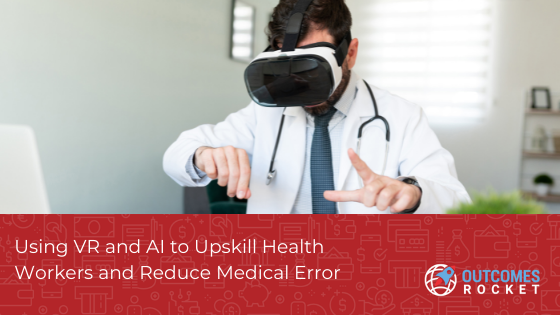
Healthcare workers face different challenges every day. Some are easy to handle, and others may be unfamiliar or complicated, like ER accidents. Statistics show that we still have a high number of patients dying due to medical errors. A study published by John Hopkins shows that more than 250,000 deaths occur due to medical mistakes.
Novel diseases like the coronavirus is another example of unknowns happening in the hospital setting. The pandemic is tough on our healthcare workers, not just because of the high number of patients to assist and take care of, but also because they had to adjust quickly. Our healthcare workers are not fully equipped with the knowledge nor the skill needed to cope efficiently through challenging situations.
One way to improve clinical efficiency is through simulations. According to the Society for Simulation in Healthcare (SSIH), “simulation is the imitation or representation of one act or system by another.” In healthcare, simulations have four main purposes – education, assessment, research, and health system integration in facilitating patient safety. Simulations help trainees learn better compared to the traditional style of teaching, which translates to better work performance.
Through simulations, healthcare professionals can acquire clinical skills through hands-on practice. Just like pilots train for hours and hours to improve safety and ensure accurate emergency procedures, doctors, nurses, and all healthcare professionals must also be trained regularly and consistently to ensure better care delivery.
While there is no replacement for the real thing, simulations can get as close to reality especially since the advent of modern technologies. Recent advancements have made it possible to create simulation tools that look and feel real, allowing trainees to practice, make mistakes, and learn from these tools without harming actual patients.
In 2018, Dr. Alex Young founded Virti to provide people with the best learning and training tool to help them perform under pressure.
Virti is a training platform that uses extended reality(XR), artificial intelligence, and gamification to help employees learn faster.
As a trauma and orthopedic surgeon with a background in education who grew up a gamer, Alex successfully merged all his passion in the Virti platform. This immersive enterprise solution has technology, education, and healthcare, delivering a training platform where people can learn and practice to quickly adapt to things they have to do outside of their comfort zone.
“My reason for Virti was how we can use disruptive technology like XR, virtual augmented reality and artificial intelligence to revolutionize how people understand learning and performance and then deliver that, especially in the healthcare sector, to make real change in how patient care is delivered,” Alex shared.
This is not to say that we don’t have simulations in healthcare. We do. Simulation is one of the pillars of medical education and it is linked to better medical performance. It is proven to help novice practitioners gain confidence in handling patients in the real world. Today, patient simulators display physical reactions like blink, cry, and have a heartbeat and pulse.
Virti’s simulations take training to a more efficient and scalable level. While traditional simulations have to be done in-person, Virti allows any employee or healthcare workers to connect, engage, and train remotely anytime, thanks to its virtual patient technology that creates an extremely realistic and repeatable experience.
Virti is also proven to significantly increase knowledge retention. “We had almost a 230% increase in knowledge retention compared to the traditional methods of training that we did a study against. And the other really interesting thing was on the qualitative data side with a lot of the health care professionals who went through all training, were significantly less anxious about going into these potentially hazardous environments because they felt better prepared to put on protective equipment.”
Virti is more than just a training platform. One of its impressive features is predictive analytics which turns subjective feedback into objective data with unique data science insights.
In conventional simulations, either in using standardized patients or the apprenticeship model, there’s a lot of variabilities.
“If I was learning how to break bad news to a patient when I was in medical school or when I was in my postgraduate training, I might sit down with an actor or actress or standardized patient, deliver bad news to them in a safe environment, and then receive critique back from the actor or actress, as well as anyone observing that. But often it’s very subjective and it’s feedback based on their own experiences,” Alex shared. “One of the things we set out to do at Virti is making a lot of this training on-demand, standardized, and reduced variability. We also wanted to use some of this technology like machine learning to make a lot of this training content much more data-driven and much more actionable.”
Communicating with computer-generated avatars, learners receive immediate feedback. One of the functions of Virti’s predictive analytics is to provide organizations with easy-to-understand insights into knowledge gaps, knowledge retention, content accuracy, and more.
Virti’s immersive training platform has made learning across different industries easier. Because of the pandemic, in-person training is a challenge, but Virti’s virtual learning solution came just at the right time.
In healthcare, different organizations are using Virti to continue medical training without putting health workers’ lives at risk.
It is being used by the NHS to train staff on infection control, proper wear of the PPE, navigating unfamiliar wards, and using the ventilators correctly. Virti has also recently released its “virtual patient” which uses Natural Language Processing (NLP) to simulate realistic patient responses in medical role-plays.
Virti is also currently deployed across secondary schools and universities in England to enable effective learning. The educator.org reports that the instructional videos are uploaded to a cloud-based platform and teachers and students both access it as needed.
It is being used to train teaching staff following the safe social distancing protocol. Science students use the platform to complete practical experiments without direct teacher instruction. Teenage pupils rely on the platform for mindfulness exercises.
Chosen as one of Time’s Best Inventions of 2020 and one of the World’s Most Innovative Education Companies of 2021, Virti has truly revolutionized how people understand learning and performance, and with other companies seeing its potential, we can expect more to come.
For more of this highly interesting topic and to listen to my full conversation with Alex, please visit https://outcomesrocket.health/virti/2021/04/
.
According to the 2020 Centers for Disease Control and Prevention report, roughly 34.2 million Americans have diabetes,...
Read MoreAs a farmer, Rod was used to long days. He worked 18 hours a day, 7 days...
Read MoreWith investors receiving hundreds of pitch decks every year, how do you create a compelling presentation that...
Read More
Brittany Busse Co-Founder, President, and Chief Medical Officer at
ViTelHealth


Stephen Thorne Founder and CEO at
Pacific Dental Services

Keith Carlson Nurse Career Coach